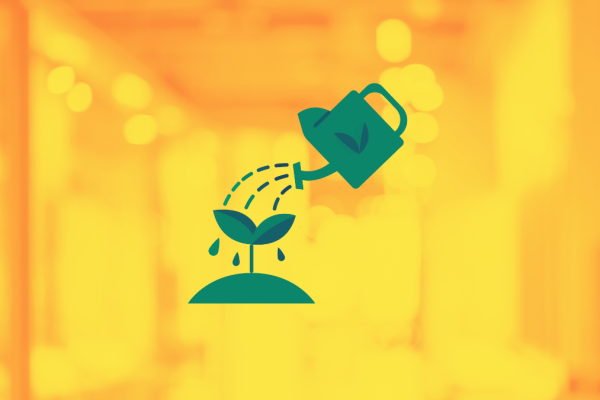The Labor Shortage and Higher Pay
Employees are experiencing higher paychecks thanks to the labor shortage, but there are other factors like inflation that should be considered.

With 2021 coming to an end, we look ahead at what the future holds. Post pandemic (although some might argue we’re still mid-pandemic with new variants arriving with each new season) and stimulus checks being a thing of the past, Americans have amassed some savings during the past two years so pocketbooks are a little on the healthier side for once. Wages are also rising at the fastest pace in decades because of a major labor shortage, putting employees seemingly in the driving seat when it comes to their own jobs and careers.
Quit culture, labor shortage and higher pay
Earlier in 2021, many forecasters expected the millions of people who lost a job or left the work force early in the pandemic to return to work. However, that didn’t happen, leaving many wondering if several million workers have left the labor force completely. Lots of baby boomers retired and record stock market gains have made it easier for them to stay at home.
But the majority share of the labor force is no longer Boomers — it’s Millennials. They now make up close to 75 percent of the workforce, replacing Boomers and overshadowing the numbers of Generation X. Millennials have been called a lot of things, but “the job-hopping generation” is a moniker that seems appropriate here. According to Gallup, 6 out of 10 of them are open to new job opportunities.
“Quit culture” has become a trend, which is troubling for employers, because lack of employee retention is a costly issue. Today, people are leaving their jobs at a higher rate than ever before. In April of 2020, 1.9 million people quit their jobs to find something else. Then in August of the same year, that number increased to 2.8 million, according to the Bureau of Labor Statistics. Along with rising turnover rates, the cost of employee turnover has risen, as well.
According to Employee Benefit News, employers spend an average of 33 percent of a worker’s annual salary to replace just one employee. Let’s put that into perspective: It will cost $12,000 to replace an entry-level employee making $36,000 a year, $20,000 to replace a manager making $60,000 a year, and $50,000 to replace an executive making $150,000 a year. To put it another way – if you are a 150 person company with 11 percent annual turnover, and you spend $25k per person on hiring, $10k each on turnover and development, and lose $50k of productivity opportunity when refilling a role, then your annual cost of turnover would be about $1.57 million. That’s quite the dent in your bottom line!
Not everyone is rushing to the exit though. Analytics company Perceptyx reviewed data from 15 million employees, finding that nearly half are unhappy at work, and one out of three employees are unmotivated as well — yet they have no plans to leave the company. So for many it seems that staying despite dissatisfaction is the trend.
One of the silver linings of the pandemic-induced labor shortage we’re currently seeing is that workers are enjoying the biggest increase in paychecks in decades. The rule of supply and demand applies here. Average hourly wages, for example, have jumped almost 5 percent in the past year. Comparatively, wage increases barely grew more than 2 percent per annum in the previous decade. Even more important, that puts money into the hands of consumers — and consumer spending is the main engine of U.S. growth, accounting for about 70 percent of all economic activity.
Here comes the bad news though…
On the down side, the biggest increase in U.S. inflation in almost 40 years caught most Americans by surprise. The yearly rate of inflation hit as high as 6.8 percent. To put that in perspective, a gallon of gas can now cost you over $5 if you’re living in California. A year ago, the average cost of gas in the same state was $3.15. Luckily, most every economist thinks inflation will slow, and sharply, next year. However, it is unlikely that we are heading back to the sub-2 percent inflation rates that we have been accustomed to.
The general consensus is that the combination of higher inflation and higher interest rates in 2022 could exert a small drag on the economy. The 30-year mortgage rate, for example, could climb to 3.75 percent from around 3 percent right now. Car loans could also become more costly. Higher rates will probably slow the recent uptick in home refinancing and possibly plateau the recent frenzy of home sales. On the other hand, savings accounts might benefit from the higher interest rates, so too will CDs and bank deposits if inflation drops as sharply as some are predicting.
What’s the point?
The big question is – how does inflation affect your cash flow? Does it have an effect on you if you get a raise? In the event you have got a raise — is it enough in today’s marketplace? The problem with just looking at how wages have increased and how readily available well-paying jobs are, without taking into account inflation, results in an unrealistic, or false impression. In other words, if you’re just seeing the positive of how much more money you’re earning, without at least considering the negative of how much more money you’re having to pay out in living expenses – you’re not looking at the whole picture.
Case in point — as mentioned above, the inflation rate shot up to 6.8 percent. Wages on the other hand, have seen a 5 percent increase. See the problem there? With inflation outpacing wage increases, what you end up with is a deficit in actual earning versus cost of living. An over-simplification, maybe, but that’s just basic math.
All of that having been said, there’s obviously nothing wrong with leaving a job if you’re unhappy there – by all means, go find yourself an amazing workplace! The thing to keep in mind though, is that there are many factors at play, and making a smart decision based on all of the relevant information, rather than just jumping ship and saying “Well I’ll be fine, there’s plenty of high paying jobs out there because the of labor shortage!” Right. The labor shortage. But also, inflation.
In summary, make an informed decision.


